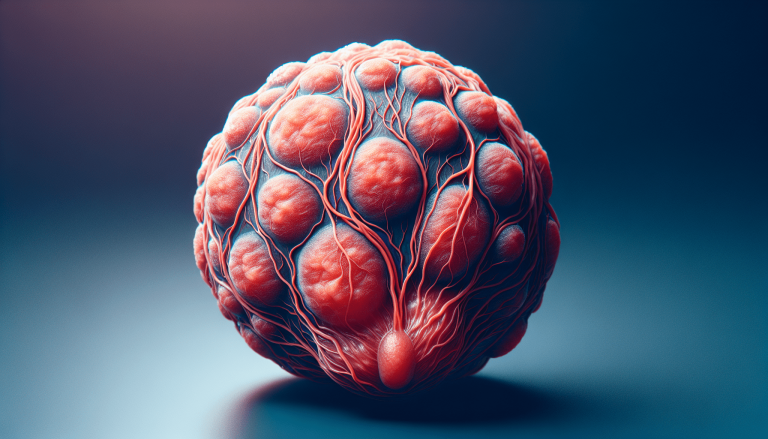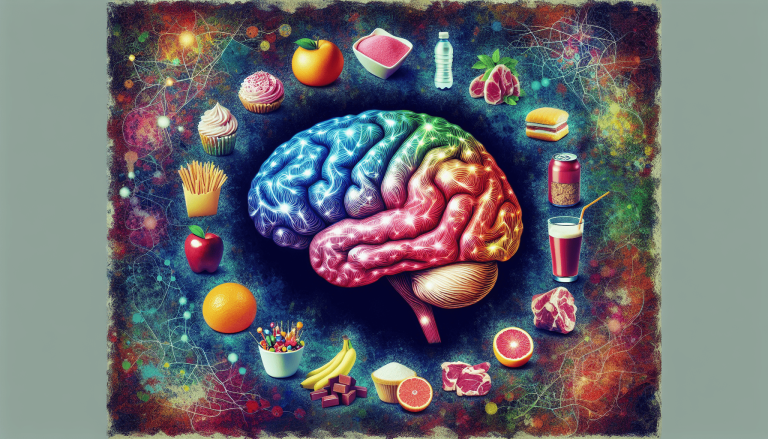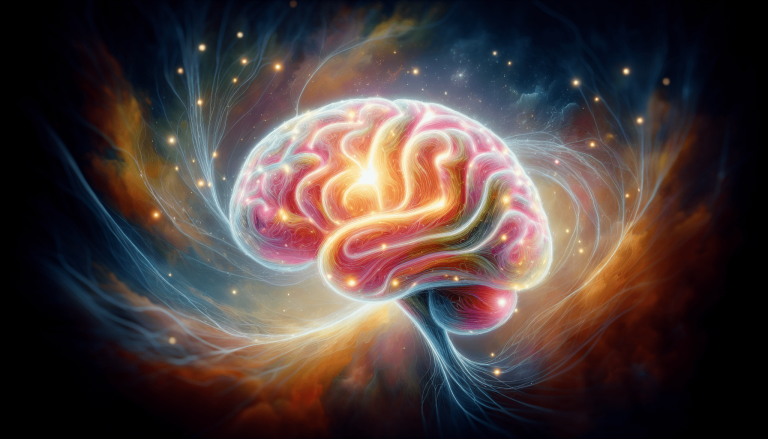What Are The Main Causes Of Memory Loss?
You might have noticed moments where your memory slips, like forgetting where you left your keys or struggling to recall a familiar name. These instances of memory loss can feel frustrating, but understanding their causes can provide clarity. In this article, “What Are The Main Causes Of Memory Loss?”, you’ll explore various factors such as age, stress, medical conditions, and lifestyle habits that could be affecting your cognitive functions. By gaining insights into these causes, you can take proactive steps to maintain and improve your memory health. Have you ever walked into a room and completely forgotten why you went there in the first place? Or maybe you’ve had that moment where someone’s name is right on the tip of your tongue but just won’t come to you? Don’t worry, you’re not alone! These lapses in memory can happen to anyone, and they can be influenced by a variety of factors. In this friendly guide, we’ll dive into the main causes of memory loss and help you understand what’s going on in that amazing brain of yours.
Understanding Memory Loss
Memory loss, or amnesia, is more common than you might think. It’s often associated with aging, but there are several other reasons why someone might experience it. Whether it’s short-term memory hiccups or long-term forgetfulness, understanding the underlying causes can help you manage and potentially improve your memory.
Types of Memory Loss
Before we get into the nitty-gritty of why memory loss happens, let’s clarify the two main types of memory loss: short-term and long-term memory loss.
Short-Term Memory Loss: This type affects your ability to remember information for a short period, typically seconds to minutes. It includes forgetting recent events or things you’ve just learned.
Long-Term Memory Loss: This affects your ability to recall events, facts, and experiences over a longer period, such as weeks, months, or years.
Now, let’s look at the causes behind these types of memory loss.
Aging and Memory Loss
Let’s start with one of the most common questions: does aging automatically mean you’ll lose your memory? The simple answer is no, but the risk increases as you age.
Normal Age-Related Changes
As you age, it’s normal to have occasional memory lapses. For example, you might forget where you placed your keys or have trouble recalling the name of an acquaintance.
Cognitive Decline
However, more significant memory loss may be a sign of cognitive decline. Conditions like Mild Cognitive Impairment (MCI) or dementia, including Alzheimer’s disease, are more prevalent in older adults.
Comparison Table
| Normal Aging | Cognitive Decline | |
|---|---|---|
| Frequency of Memory Loss | Occasional | Frequent |
| Impact on Daily Life | Minimal | Significant |
| Reversibility | Often Yes | Often No |

Health Conditions and Memory Loss
Several health conditions can contribute to memory loss. It’s not just about what’s going on in your brain; your overall health plays a significant role.
Mental Health Issues
Conditions such as depression, anxiety, and stress can severely impact your memory. When you’re dealing with mental health challenges, it can be difficult to concentrate, leading to poor memory retention.
Example: If you’re feeling overwhelmed at work, you might find it hard to focus on tasks, and as a result, you’ll struggle to remember important details.
Chronic Diseases
Chronic diseases like diabetes, high blood pressure, or heart disease can also affect brain health. These conditions often lead to complications such as stroke, which directly impact memory.
- Diabetes: High blood sugar levels can damage blood vessels in the brain, affecting cognitive functions.
- Heart Disease: Poor heart health reduces blood flow to the brain, impacting memory and other cognitive skills.
Neurological Disorders
Conditions like Parkinson’s disease, Multiple Sclerosis (MS), and epilepsy can also lead to memory issues. These disorders affect the brain’s communication pathways, leading to cognitive impairments.
Lifestyle Factors and Memory Loss
You might be surprised to learn how much your daily habits can influence your memory. Let’s look at a few common lifestyle factors.
Diet and Nutrition
Your brain needs the right fuel to function properly. A diet lacking essential nutrients can impair your memory. Key nutrients for brain health include:
- Omega-3 Fatty Acids: Found in fish, flaxseeds, and walnuts.
- Antioxidants: Found in berries, dark leafy greens, and nuts.
- Vitamins: Especially B-complex vitamins found in whole grains, eggs, and dairy products.
Exercise and Physical Activity
Regular physical activity improves blood flow to the brain and helps with the growth of new brain cells. Even simple activities like walking or gardening can make a difference.
Sleep
A good night’s sleep is crucial for memory consolidation. Lack of sleep can lead to memory problems and poor concentration.
Example: Have you ever noticed how you can’t think straight after a night of poor sleep? That’s your brain’s way of telling you it needs rest to function optimally.

Environmental and Psychological Factors
Sometimes, your surroundings and emotional state can play a significant role in how well you remember things.
Stress and Anxiety
Stress and anxiety can take a toll on your brain. High levels of stress can lead to hormone imbalances that affect brain function.
Trauma
Emotional or physical trauma can also result in memory loss. This could be due to the psychological impact of the event or because the trauma directly affected parts of the brain responsible for memory.
Substance Abuse
Using drugs or excessive alcohol consumption can also harm your brain. Long-term substance abuse can lead to significant memory impairments.
Medications and Memory Loss
Certain medications can cause memory problems as a side effect. It’s essential to be mindful of the medications you’re taking and their potential impacts.
Common Offenders
- Sleeping Pills: These can interfere with the natural sleep cycle and hinder memory consolidation.
- Painkillers: Especially opioids, which can suppress brain function and affect memory.
- Antidepressants: Some can cause memory issues as a side effect.
Chart: Types of Medications and Potential Memory Impact
| Medication Type | Potential Impact on Memory |
|---|---|
| Sleeping Pills | Disrupted sleep and memory consolidation |
| Painkillers | Suppressed brain function |
| Antidepressants | Memory issues as a side effect |
What You Can Do
Always consult with your healthcare provider if you suspect your medications are affecting your memory. There may be alternative treatments available.
Genetic Factors
Believe it or not, your genes play a role in memory retention and the onset of memory disorders.
Familial Alzheimer’s Disease
Certain types of memory loss, such as Familial Alzheimer’s Disease, are inherited. If there’s a history of Alzheimer’s in your family, you may be at a higher risk.
Genetic Testing
Genetic testing can sometimes help determine whether you’re at higher risk for memory-related conditions. However, it’s essential to discuss the benefits and limitations of genetic testing with a professional.
Tips for Maintaining and Improving Memory
Worried about memory loss? Here are some practical tips to help you maintain and even improve your memory.
Mental Exercise
Just like your body needs physical exercise, your brain needs mental exercise. Engage in activities that challenge your brain, such as puzzles, reading, or learning something new.
Social Interactions
Keep those social ties strong! Interacting with others stimulates your brain and helps maintain cognitive functions.
Healthy Habits
- Balanced Diet: Make sure you’re eating a well-rounded diet rich in brain-boosting nutrients.
- Regular Exercise: Aim for at least 30 minutes of physical activity most days of the week.
- Quality Sleep: Strive for 7-9 hours of good-quality sleep each night.
Professional Help
If you’re genuinely concerned about your memory, don’t hesitate to seek professional help. Sometimes early intervention can make a world of difference.
When to Seek Help
So, when should you be concerned about memory loss? It’s natural for memory to fluctuate, but there are certain signs that indicate it might be time to consult a healthcare professional.
Warning Signs
- Frequent Memory Lapses: If you find yourself forgetting things more often than usual.
- Impact on Daily Life: If memory issues are affecting your ability to perform daily tasks.
- Mood Changes: Memory loss accompanied by changes in mood or behavior.
Types of Professionals
- Neurologist: Specializes in brain and nervous system disorders.
- Psychiatrist: Can help if memory loss is linked to mental health conditions.
- Geriatrician: Specializes in the health care of older adults.
Conclusion
Memory loss can be unsettling, but understanding its causes can help you manage and potentially improve your memory. Whether it’s due to aging, lifestyle choices, or health conditions, being informed empowers you to take action. Remember, it’s always okay to seek professional help if you’re concerned. Your brain is an incredible organ capable of adaptation and growth, so take good care of it, and it will take good care of you!
Feel free to keep this guide handy and revisit it whenever you need a refresher on the main causes of memory loss. Stay sharp and take care!
Additional Resources

If you find yourself more confused lately, forget where you left small things like your phone or your glasses…. Words get stuck on the tip of your tongue or you don’t remember why you walked into a room…
>>>Watch this short documentary immediately because it may very well save your memory.
New Harvard research reveals this common household toxin wipes out your memory 3x times faster… Decreasing the blood flow to your brain and “violently attacking” your neurons and synapses on the hippocampus…
This is the part of your brain that forms episodic memories, that makes you able to think and remember, literally…
Scientists from the National Institutes of Health warn that over 200 Americans are exposed to this toxin daily… And it’s the primary reason why every 66 seconds someone in the United States develops Alzheimer’s and 1 in 3 seniors ends up with some form of dementia.
Click below to find out all about it and what you can do to improve your memory:






